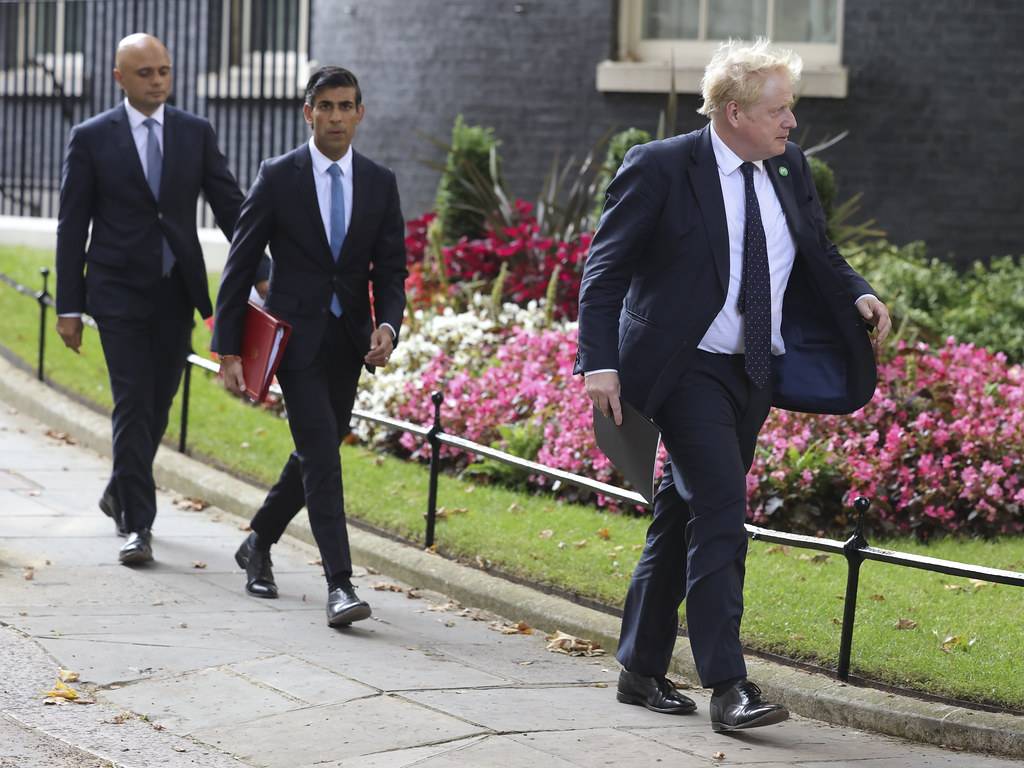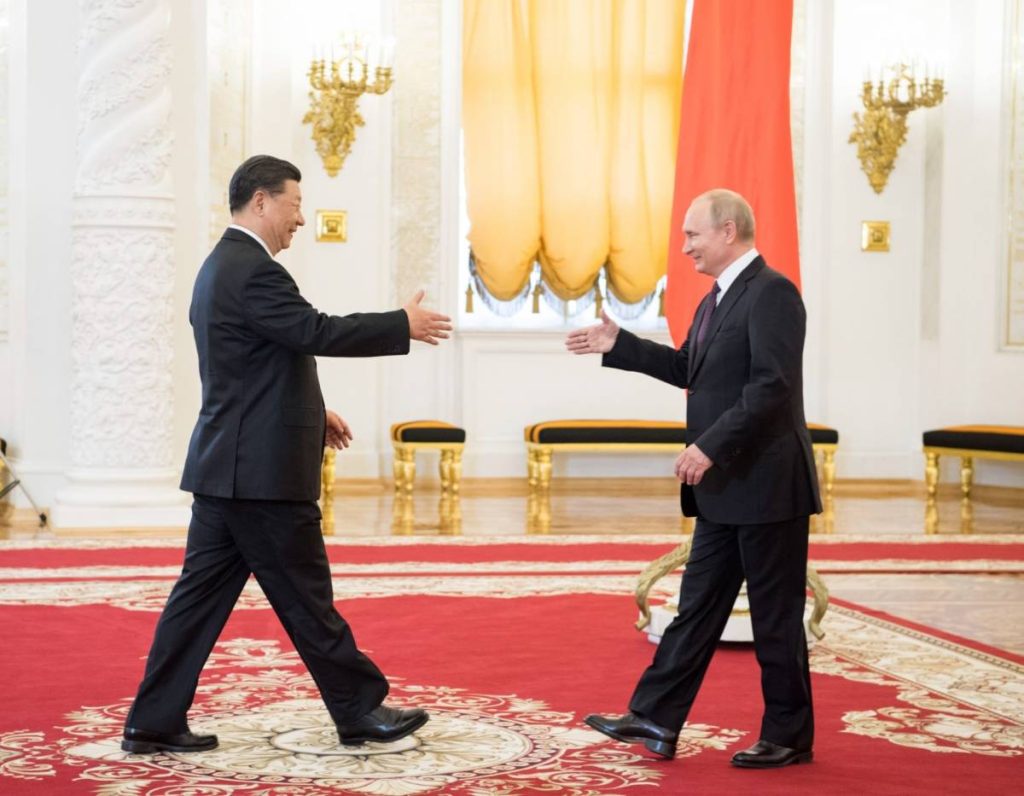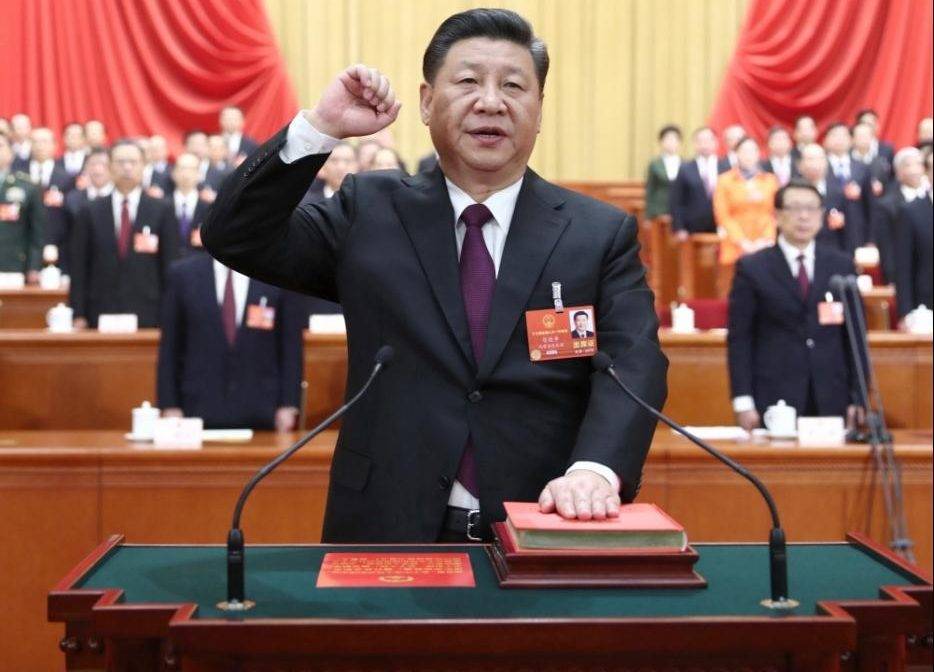What a shame! Despite all the warnings and alerts, the British treasury is blind to trust China. A cursory examination of the leaked draft agreement reveals that the Treasury is planning to invite the Chinese government’s Sovereign Wealth Fund to open a representative office in the United Kingdom. This will allow more Chinese companies to list on the London Stock Exchange… A special report by Kaliph Anaz
A draft agreement from recent economic and trade discussions between the UK Treasury and the Chinese Ministry of Finance has been released, confirming what many have long suspected: When it comes to China policy, the Treasury is still locked in the “Golden Era,” and it is staunchly opposed to those who are growing concern about Chinese authoritarianism.
The leaked documents also reveal that Tory leadership contender Rishi Sunak was close to signing a new economic agreement with China which aimed to “deepen trade links” and make the UK the “market of choice” for Chinese companies, The Times reported.

Despite the draft deal with China, the former chancellor has positioned himself as a China “hawk” during the Tory leadership contest. He even warned that Beijing represents the biggest long-term threat to the UK’s interests. He accused China of stealing technology and bullying smaller nations. However, this year Sunak and the Treasury were in the advanced stages of preparing an “economic and financial dialogue” with China which would have significantly strengthened ties between the two nations.
The Times in its exclusive report said the 47-page draft of the proposed agreement includes details of potential “policy outcomes” in more than 20 areas including closer ties on banking, asset management, regulation and travel.
What needs to be seen is if Boris Johnson’s successor is ready to question this established dogma, or whether any of the provisions in this draft agreement will be revisited in a future economic discussion between the United Kingdom and China.
Entitled “policy outcomes of the 11th UK-China Economic and Financial dialogue”, it opens on the assumption that the talks have already taken place between Sunak and his Chinese counterpart before going into blow-by-blow detail on the agreement between the two nations.
It makes no reference to China’s treatment of the Uighur people, which has been described as genocide, or Beijing’s clampdown on people’s democratic rights in Hong Kong.
In an apparent effort to reassure China, it states that the National Security and Investment Act — legislation that enables the government to block takeovers — “is not about particular countries or actors”. It agrees to an “open, fair and non-discriminatory investment environment”.
The Treasury has long had the major seat in pressing forward the strengthening of economic and financial links between China and the UK through frequent conversations, first under George Osborne (from 2010 to 2016), then under his successors.
Chinese state-owned corporations and banks, as well as Chinese state-backed technological companies such as Huawei, Hisense, TikTok, and Hikvision, have traditionally benefited greatly from these financial and economic conversations. These discussions have not only paved the way for Chinese investment in key sectors of the British economy, such as energy, water, telecommunications, and transportation, but have also positioned Chinese companies to benefit from lucrative public procurement contracts and raise capital by listing on the London Stock Exchange.
A cursory examination of the leaked draft agreement reveals that this round of China-UK economic and trade discussions was no exception. The Treasury planned to invite the Chinese government’s Sovereign Wealth Fund to open a representative office in the United Kingdom, to allow more Chinese companies to list on the London Stock Exchange, to assist Chinese companies operating in the United Kingdom in issuing renminbi debt, and to launch a new Chevening scholarship scheme to allow Chinese businessmen to study in the United Kingdom.

Of course, in exchange for assisting Chinese companies in increasing their takeovers of strategic infrastructure and businesses in the UK, allowing them to list on the London Stock Exchange, and assisting with the internationalisation of the renminbi, the British government would be fairly compensated under the draft agreement with the resumption of direct flights between London and Beijing, the relaxation of restrictions on U.K. beef exports, and greater access for HSBC and Standard Chartered.
Aside from the Treasury’s capacity to negotiate an uneven arrangement, it is noticeable that many of these proposed concessions overlook geopolitical realities, cross the stance of the United Kingdom’s important allies, or the rising public concern in the UK about being economically dependent on China.
Consider the issue of increasing the number of Chinese firms that can list on the London Stock Exchange. Such a programme would indirectly transfer Chinese internal political risks into the financial markets of the United Kingdom. Many Chinese firms are already experiencing harsh and unpredictable regulatory crackdowns from the Chinese government as a result of their international activity (e.g., Didi Chuxing’s IPO in New York). The Chinese economy is experiencing a slump unmatched in the last two decades. Serious human rights breaches in Xinjiang and Hong Kong continue to endanger the reputations of companies that have signed the ESG commitment.
Ministers have made extensive use of the National Security and Investment Act’s new powers to prevent foreign takeovers. Allowing the China Investment Corporation to open a representative office in the United Kingdom, on the other hand, would have given the sovereign wealth fund permission to expand its substantial holdings in the country, which already include stakes in Heathrow Airport, Neptune Energy, Thames Water, and logistics firm Logicor.
Similarly, the planned suggestion of assisting Chinese companies in issuing renminbi debt in the UK ignores the Chinese government’s growing interest in using renminbi internationalisation to bypass the SWIFT banking system in the future, as well as investor sentiment, with investors dumping a record $35 billion in renminbi-denominated bonds in the UK.
Even the so-called benefits of this proposed discourse, if implemented, appear to be little when examined. According to the Agriculture and Horticulture Development Board, beef exports in the United Kingdom amounted to just 364.1 million British pounds in 2021, out of a total of 312.4 billion pounds in goods exports. The recent establishment of a Chinese Communist Party cell at HSBC’s China offices indicates that Beijing is raising the cost of entry to its markets for British-based banks. These cells are part of the United Front control and influence network.

Former Chancellor Mr Sunak has previously rejected the draft accord as the product of Treasury officials, claiming that he opposed it due to national security concerns. The pact, however, represents a long-standing Treasury dogma that has prioritised growing commercial relationships above very real economic, security, and ethical dangers. Under the previous three prime ministers, the mechanics of China-UK ties have been governed by this business-first mindset.
What needs to be seen is if Boris Johnson’s successor is ready to question this established dogma, or whether any of the provisions in this draft agreement will be revisited in a future economic discussion between the United Kingdom and China.









